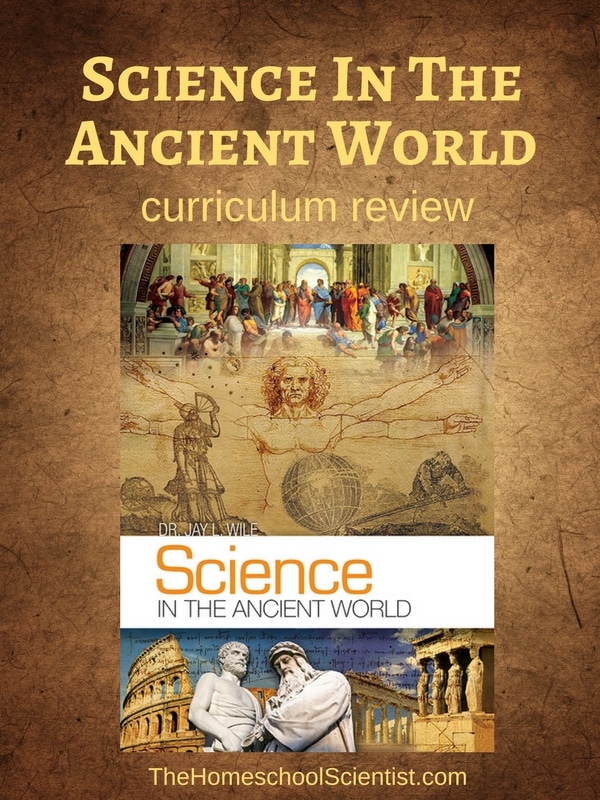Science In The Ancient World Review

Obviously, I really like science. I like to learn about science, and I like to teach science. That being said, history is a close second in my list of favorite subjects. I loved my history classes in high school and college, and I really enjoy teaching history to my children and learning along.
We commonly think of history as the study of ancient places and people. We might study Ancient History, or Medieval History, or American History. Those are the stories of civilization and societies. That is how cultures, countries. and governments were formed.
It’s not just the people, places, wars, and empires of history to which I am drawn. I find the discoveries humans have made and the progress they have made throughout history fascinating. The history of science and scientific discovery flow right with progression of human society. Why not study science from a historical perspective?
Science In The Ancient World
In the history of civilizations, we see progression. We see new ideas being presented and tested. The history of science is much the same. In the elementary homeschool science curriculum Science In The Beginning, Dr. Jay Wile presents the history of science. He takes the reader on a journey through history discussing the beliefs and knowledge of the day and how those played a role in the progress of scientific discovery and thought.
I had the opportunity to review the first book in the Science In The Beginning curriculum, Science In The Ancient World. In this book, Dr. Wile starts with the ancient Egyptians 2500 years before Christ where the doctors would try to cure diseases with plants and trial and error. If you were sick, they tried a certain plant. If you got better, they would try that plant again on someone else with similar symptoms. If you died, they would not. These early scientists were still building a knowledge and experiment base.

Dr. Wile introduces philosophers, doctors, and scientists of the ancient world and shares their hypotheses based on their discoveries, observations, and knowledge at the time. For instance, the important philosopher Ptolemy championed the idea that the earth was the center of the universe. He went so far as to create a model to explain his belief. This was based on his observations. It wasn’t until 1400 years later that other scientists gathered more information and found Ptolemy to be incorrect.
Science In The Ancient World follows the history of science through the study of the weather, magnets, physics, astronomy, anatomy, medicine, and more up to the early Renaissance period with Leonardo da Vinci’s inventions.
The Curriculum Details
Science In The Ancient World is an engaging curriculum written in the same conversational style fans of Dr. Jay Wile have grown to expect and love. It is geared toward all levels of elementary students. The lesson reviews contain questions separated for younger, older, and oldest students. The questions for the younger students are meant to be answered orally, while the older and oldest students are encouraged to keep a notebook for their answers and other notes.
The book is arranged in six chronological sections and cover many areas of scientific study. (You can look at the table of contents HERE.) The 90 lessons are meant to be completed over one school year by studying science every other day or just twice a week by skipping the optional “challenge lessons”.

Science In The Ancient World is, also, a very hands-on curriculum. This is so important. Students need to realize that science is in the doing, not in the reading. Each lesson contains a hands-on experiment or project. These are usually simple, yet effective activities that use supplies you probably already have at home.
Purchasing Science In The Ancient World
The Science In The Beginning curriculum series is published by Berean Builders. You may purchase the all 4 books of the series through their website.
Older students will probably want to keep a notebook for this curriculum to answer questions, take notes, and to record experiments and projects.


